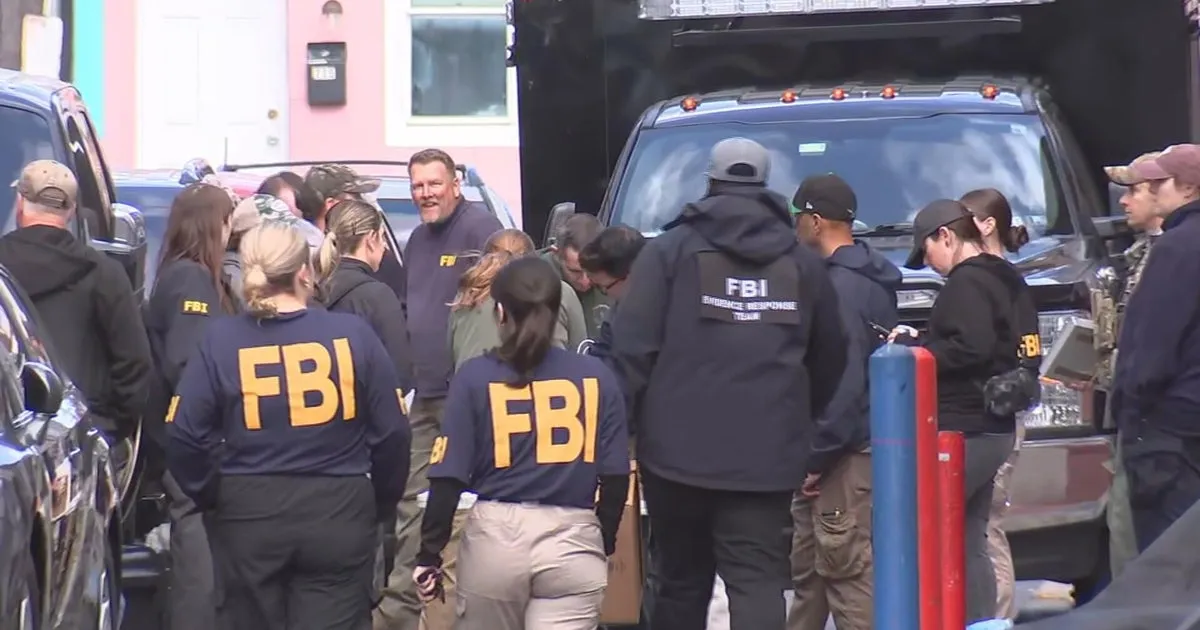
On Friday, the FBI and Philadelphia's leading federal prosecutor unveiled the successful takedown of the notorious Weymouth Street Drug Trafficking Organization, which has allegedly operated like a well-organized business, distributing dangerous narcotics for over a decade. U.S. Attorney David Metcalf confirmed that a total of 33 individuals, including two key leaders, Jose Antonio Morales Nieves and Ramon Roman-Montanez, were indicted as part of this extensive investigation.
In a coordinated effort, law enforcement officials arrested 24 suspects on Friday across various locations including Philadelphia, Delaware, New Jersey, and Puerto Rico, with the majority of arrests taking place in the Kensington area. Additionally, eight individuals were already in state or federal custody prior to the operation, and authorities continue to search for one remaining suspect.
During the operation, agents seized a significant number of firearms, including assault rifles, and confiscated substantial amounts of fentanyl and other narcotics from locations linked to the suspects. U.S. Attorney Metcalf emphasized the urgency of this operation, stating, “This case takes place at the crossroads of violence, and we are here with a loud and unmistakable message that we are reclaiming these neighborhoods for the people who live and work here.”
The investigation revealed that the Weymouth Street gang had been involved in the sale and distribution of fentanyl, crack cocaine, cocaine, and heroin since at least January 2016, marking a significant segment of an open-air drug market in Kensington. Court documents indicated that the gang branded their drugs with distinctive stamps, making them recognizable to both customers and rival drug trafficking organizations.
Morales Nieves, identified as the ringleader, allegedly controlled the 3100 block of Weymouth Street, allowing gang members to sell drugs in exchange for rent. According to court documents, he used threats of violence to protect his operation and deter competitors from encroaching on their territory.
Roman-Montanez was said to have managed the gang's daily operations, overseeing revenue, scheduling for dealers, and managing the drug supply. Metcalf stated, “They ran it like a business, but they also ran it through violence, fear, and threats.” The gang reportedly maintained strict control over their territory, employing threats of violence to enforce compliance among members and silence potential informants.
Law enforcement shared compelling evidence, including photographs showing customers lining up on Weymouth Street for drug samples, alongside a music video featuring a gang member brandishing a firearm outside a location referred to as a “bunker.” Court documents also detailed the gang's organized structure, with clearly defined roles such as block owners, street dealers, and lookouts, and an established schedule communicated through coded language and encrypted messaging apps like WhatsApp.
This takedown is regarded as one of the most significant operations against organized crime in recent memory. FBI agent Kash Patel remarked, “This is one of the largest and most impressive gang takedowns that I've ever seen. Not only are we removing guns and gang members, we are dismantling an entire coordinated section of gang violence permanently off the streets.”
The operation took place early Friday morning in the 3100 block of Weymouth Street, with local residents witnessing the presence of FBI agents and law enforcement throughout the area. Philadelphia Police played a crucial role in the investigation by providing essential intelligence, and Police Commissioner Kevin Bethel reiterated the department's commitment to pursuing violent offenders in the pursuit of safety, dignity, and peace for the Kensington community.